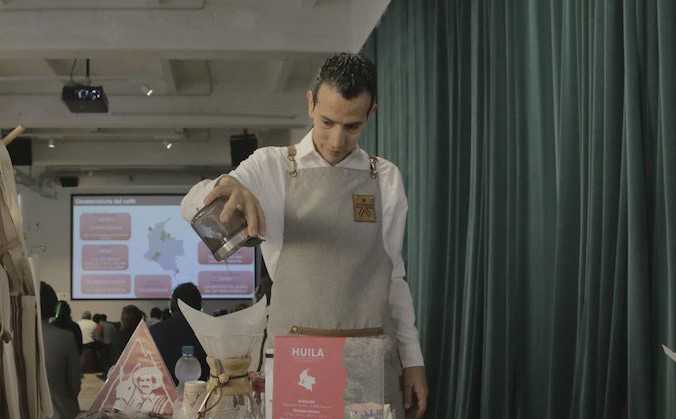MILAN — It is surely one of the paradoxes of Italian-style coffee. We are considered one of the leading countries when it comes to making coffee and yet as consumers we are perhaps among the least well informed about the raw material from which it is made and the variety of extraction methods that exist apart from espresso, that concentration of energy and aroma that has become a smash hit everywhere.
But now that is changing, as was seen at the first edition of the Milano Coffee Festival, held at Base, in Via Tortona, from 19 to 21 May and promoted by the Coffee Promotion Consortium and UCIMAC with Host Milano-Fieramilano and in collaboration with the Specialty Coffee Association (SCA). We present a round-up of the main trends that emerged at this highly popular three-day event.
Espresso isn’t everything
We are all familiar with the traditional Italian way of enjoying coffee: a concentrated shot of coffee, drunk in an instant, standing at the bar but few of us know much about the actual qualities the beverage possesses. Italian firms are now working to place more emphasis on the origin, quality, flavour, aroma and sustainability of the blends of coffee we drink on a daily basis. This also means training up baristas, who need to know everything about the raw material they are working with.
Coffee is the new wine
Coffee is experiencing a golden age. And it seems likely that, as happened a few decades ago, coffee-lovers will develop a desire to learn more and acquire skills, so that they can recognise different origins and the essential aromatic distinction between Arabica and Robusta or the unique features of “crus”, and familiarise themselves with the different extraction and preparation methods and ways of enjoying coffee. We might also soon be seeing coffee menus with a rich, composite choice.
Either espresso or slow
Italy is the home of espresso and mocha, but Chemex, V60, Syphon and Aeropress are little-known terms. And yet abroad, these are very widespread and highly popular extraction methods, especially in those countries (like Australia, the USA and even France, much closer to home) that are establishing themselves as trendsetters in coffee culture. These methods, which use percolation or stewing to bring out the various aromas, provide new sensations. They take longer and indeed their preparation often takes the form of a quite elaborate ritual.
Some like it cold
Gone are the days of the mocha stored in a bottle in the fridge ready to be poured into a tall glass over ice. The new frontier for summertime coffee is the “cold brew”, a slow, cold extraction process that exploits that solvent properties of water at a low temperature and results in a rich, elegant drink, perfect not just on its own but also as an ingredient for a range of cocktails. It needs to infuse for a whole night, but then it can be kept for several days. But the big drink this summer will arguably be Nitro Cold Brew. This method, which comes from Australia and the United States, has been spreading throughout Europe over the past few years, and is now offered at big chains like Starbucks. But it is perfect also as a “draught” brew served in seaside bars, or as a way to cool down in the long hot (an probably ever hotter) summers in the city…















